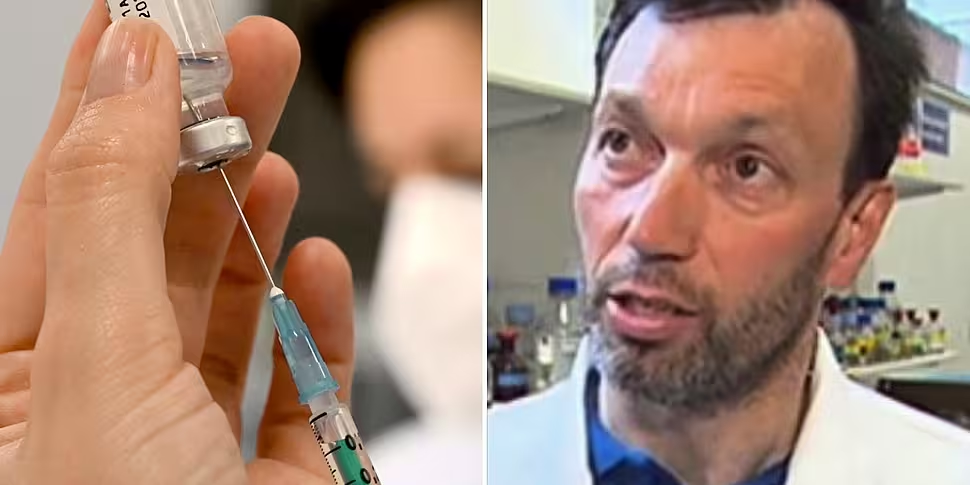Professor Sam McConkey says parents of younger children should want to protect them from COVID-19.
He was speaking after the Government accepted advice to roll out vaccines to children aged between five and 11.
The National Immunisation Advisory Committee (NIAC) has approved the use of the Pfizer jab in this age group.
Children who have an underlying condition, or who live with someone vulnerable, will be prioritised.
Prof McConkey, from the Royal College of Surgeons in Ireland, told Lunchtime Live it is in the children's interest to be vaccinated.
And he says while around one in 3,000 children can get very ill from COVID-19, parents should want to protect them.
"My children are a bit beyond 11 years of age, so it's not relevant to me, personally.
"But I would be advocating that parents of children between five and 11 do get their children vaccinated for the children's own sake.
"Not out of some sort of 'Let's vaccinate the children to protect the elderly' - but rather the children themselves [that] have about a one in 3,000 chance of getting a rather bad complication of Sars-CoVi-2."
And he believes the unknowns from the Omicron variant should also be an impetus for this.
"It happily doesn't seem to be causing as much disease in South Africa as previous waves there.
"But inevitably our children will be infected; it also causes a multi-system inflammatory syndrome in children, and we hope this vaccine will at least partially protect them from that".
But he says emotion is also involved in this, as well as science.
"Probably the most powerful emotion many of us ever experience, it's that one as a parent to protect and look out for the welfare and benefit of the next generation.
"Not just our own children, necessarily, but our community's and our nation's children.
"I think that's a really powerful human attribute: that we do care for the next generation in these really emotional and powerful ways".
He says while there is not as much data for children as adults for these vaccines, studies show they do work at preventing disease.
"We know that...it has been given to hundreds of millions of adults.
"So there's a lot of adult safety data and we know very strongly in adults that it works.
"There is a much smaller amount of data in children".
And he says a study of 1,560 children, from the New England Journal of Medicine in November, found no significant side effects.
"They did produce good antibodies; very, very similar amount of antibodies... to people [aged] 18 to 25.
"And happily they showed - and this was done in Spain, America, Poland and several countries - the children that were vaccinated had 90% less Sars-CoVi-2".









